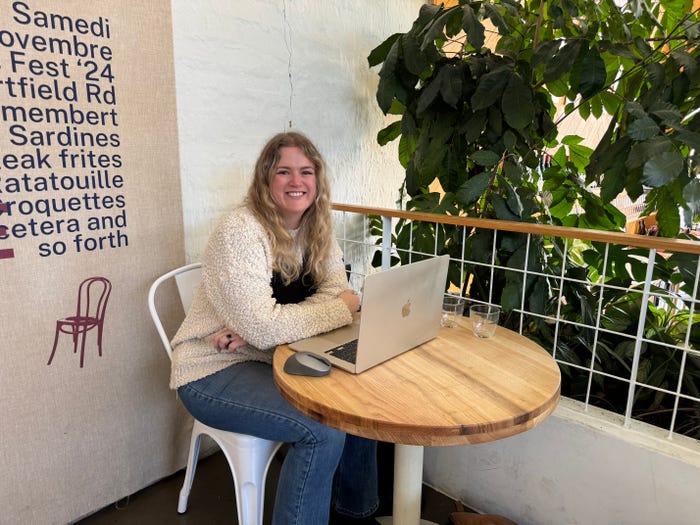Health
Adult ADHD Diagnosis Transforms Life at 32: A Personal Journey

Receiving a diagnosis of Attention Deficit Hyperactivity Disorder (ADHD) at age 32 can be a pivotal moment in a person’s life, as evidenced by the experience of Tayla Blaire. Initially skeptical about the impact of such a diagnosis after completing her education, Blaire discovered profound benefits that would transform her daily life and coping mechanisms.
Understanding the Diagnosis
Blaire had long suspected that she might have ADHD, yet she hesitated to pursue a formal diagnosis. The thought of receiving a label felt unnecessary, especially since she had successfully navigated her academic journey over a decade earlier. She believed that her established career and personal systems for organization made a diagnosis irrelevant. Yet, after a consult with a psychiatrist, she learned that the benefits of understanding her condition extended far beyond her school years.
“The last time I set foot in an exam hall was over 10 years ago, so I figured that, at 32, getting a formal ADHD diagnosis would be pointless,” Blaire reflected. She compared the experience of seeking a diagnosis to her awkward attempt at rollerblading, where she felt out of place amongst children effortlessly gliding past her.
The Importance of Adult Diagnoses
What Blaire discovered is that adults require these diagnoses for different reasons than children. While children may have teachers or parents providing structure and support, adults often must manage their own lives. Blaire explained, “No one is bundling me into the car to ensure I make a meeting on time, and if I miss an email, there could be serious consequences.” This realization prompted her to seek out an assessment, particularly as she grappled with feelings of imposter syndrome.
After a thorough consultation, the diagnosis was confirmed. “I was surprised at how quick the process was,” she noted, adding that the diagnosis brought a sense of compassion every time she questioned her behaviors and tendencies. The assessment opened the door to understanding her coping strategies better, allowing her to confront challenges she had long faced without clarity.
Blaire’s experience highlights how a late diagnosis can illuminate patterns of behavior that may have gone unrecognized for years. She began to view her struggles with attention and time management through a new lens, allowing her to develop more effective coping skills. Tasks that once felt overwhelming became manageable as she learned to accept her tendencies without self-criticism.
Reflecting on her newfound awareness, Blaire shared, “I started to identify how time-blind I really am,” recognizing that her incomplete to-do lists stemmed from overambitious scheduling rather than laziness. This shift in perspective has helped her approach daily tasks with greater patience and understanding.
While Blaire does not have exams on the horizon, she finds value in her late-in-life ADHD diagnosis. It has prompted her to ponder “what if” scenarios—what if she had received this diagnosis as a child? She speculates on how her educational choices and work life might have differed. However, she ultimately understands that focusing on the past is less productive than embracing her current journey.
Connecting with others who share similar experiences has also been empowering for Blaire. She recently reached out to her social media followers to find out how many of them had received ADHD diagnoses, discovering that she was not alone in her struggle.
In conclusion, Tayla Blaire’s journey illustrates the significant impact that an ADHD diagnosis can have on adults, challenging the misconception that these assessments are only beneficial for children. Her story serves as a reminder that understanding one’s unique challenges can lead to empowerment and community, regardless of when the diagnosis occurs.
For more insights into ADHD and personal experiences, visit Business Insider.
-

 Science2 weeks ago
Science2 weeks agoIROS 2025 to Showcase Cutting-Edge Robotics Innovations in China
-

 Politics2 weeks ago
Politics2 weeks agoJudge Considers Dismissal of Chelsea Housing Case Citing AI Flaws
-

 World2 weeks ago
World2 weeks agoBravo Company Veterans Honored with Bronze Medals After 56 Years
-

 Top Stories2 weeks ago
Top Stories2 weeks agoIndonesia Suspends 27,000 Bank Accounts in Online Gambling Crackdown
-

 Lifestyle2 weeks ago
Lifestyle2 weeks agoStone Island’s Logo Worn by Extremists Sparks Brand Dilemma
-

 World2 weeks ago
World2 weeks agoHoneywell Predicts Record Demand for Business Jets Over Next Decade
-

 Health2 weeks ago
Health2 weeks agoStartup Liberate Bio Secures $31 Million for Next-Gen Therapies
-

 Sports2 weeks ago
Sports2 weeks agoMel Kiper Jr. Reveals Top 25 Prospects for 2026 NFL Draft
-

 Health2 weeks ago
Health2 weeks agoTop Hyaluronic Acid Serums for Radiant Skin in 2025
-

 Politics2 weeks ago
Politics2 weeks agoNew Jersey Voters Urged to Register Ahead of November Election
-

 Lifestyle2 weeks ago
Lifestyle2 weeks agoMary Morgan Jackson Crowned Little Miss National Peanut Festival 2025
-

 Sports2 weeks ago
Sports2 weeks agoYamamoto’s Mastery Leads Dodgers to 5-1 Victory in NLCS Game 2







